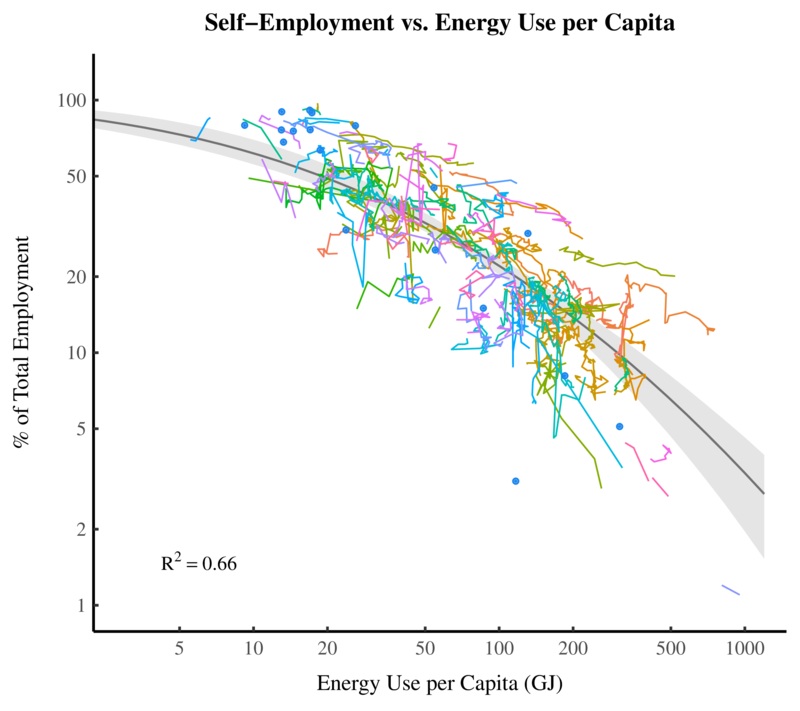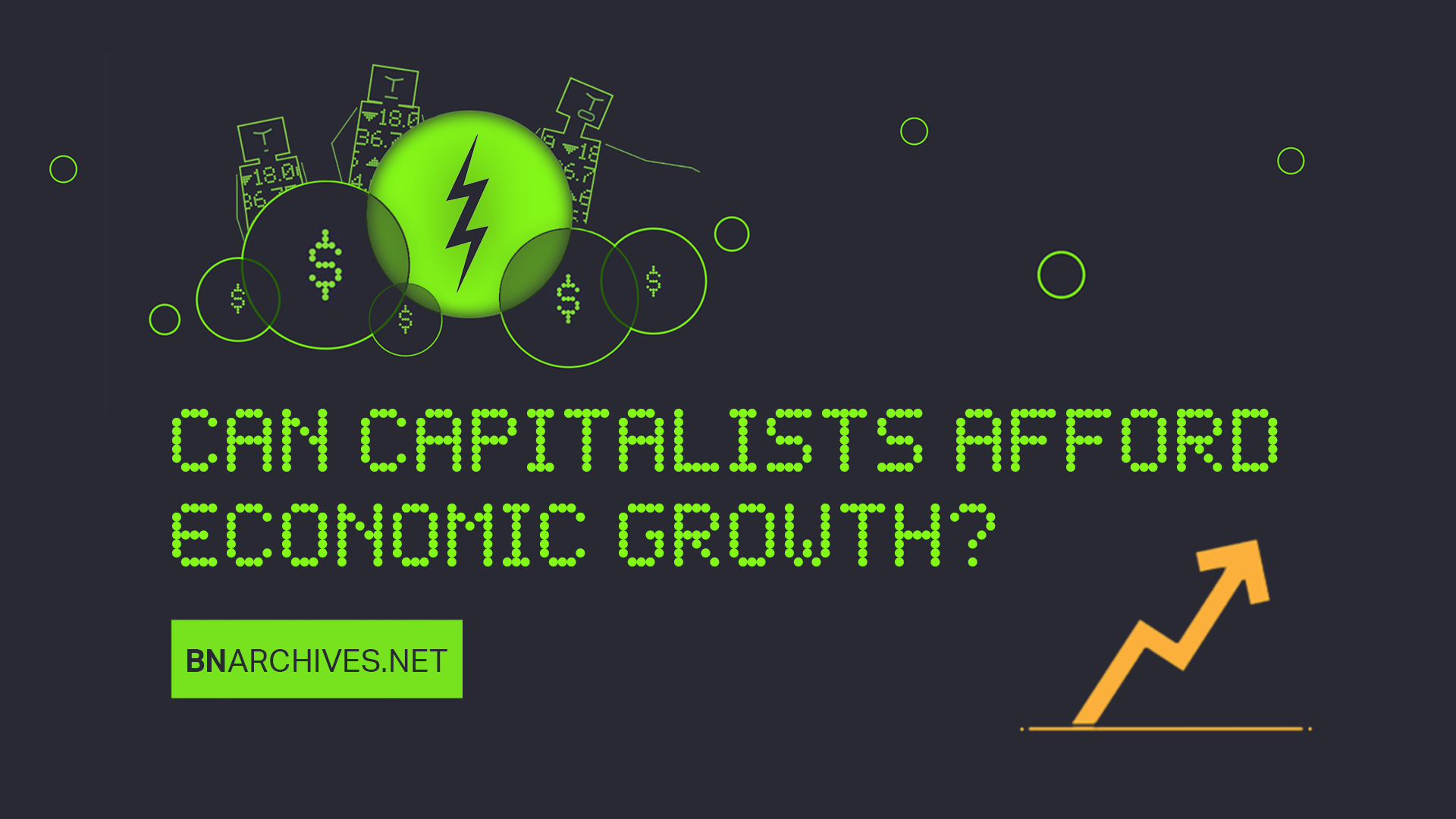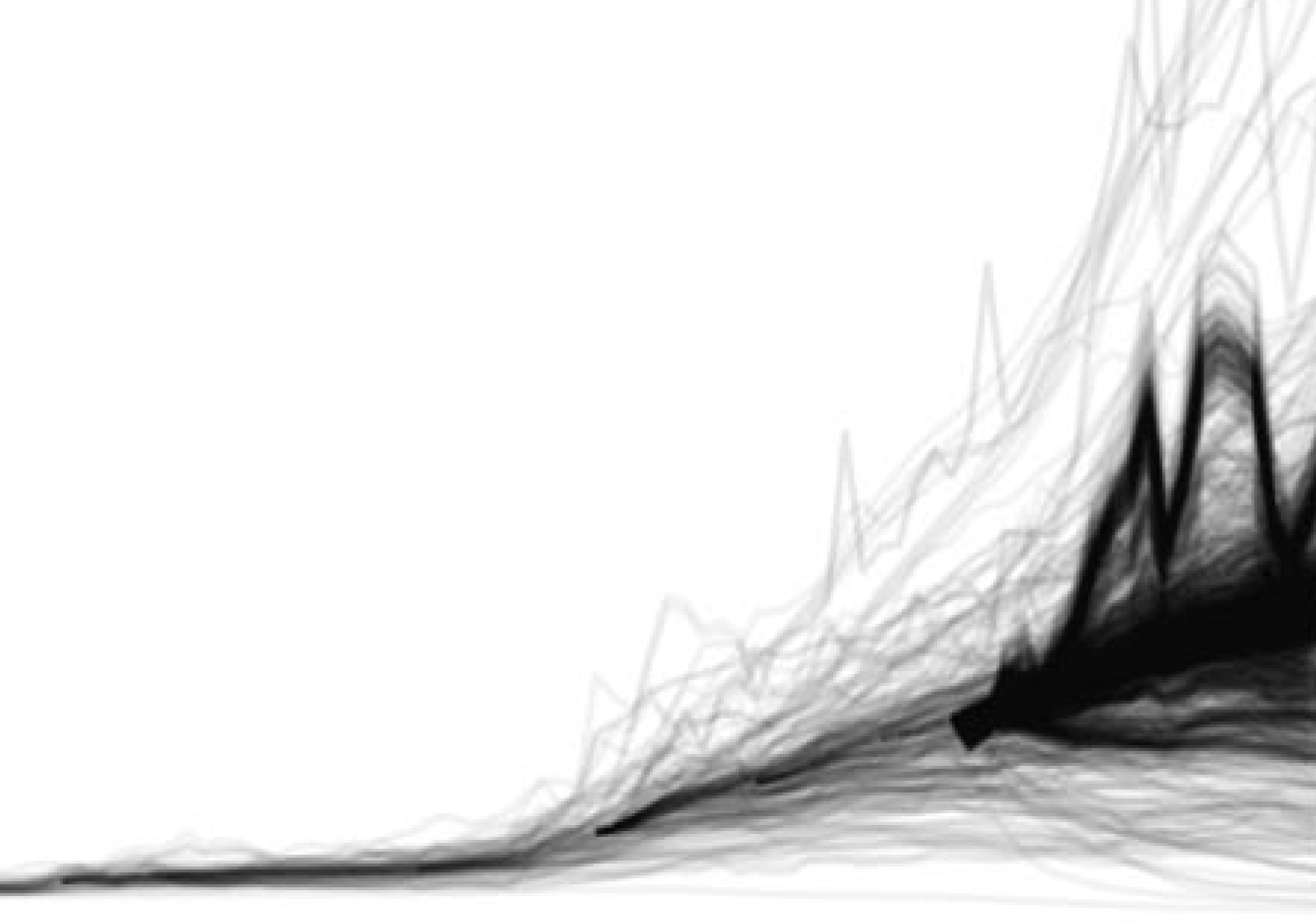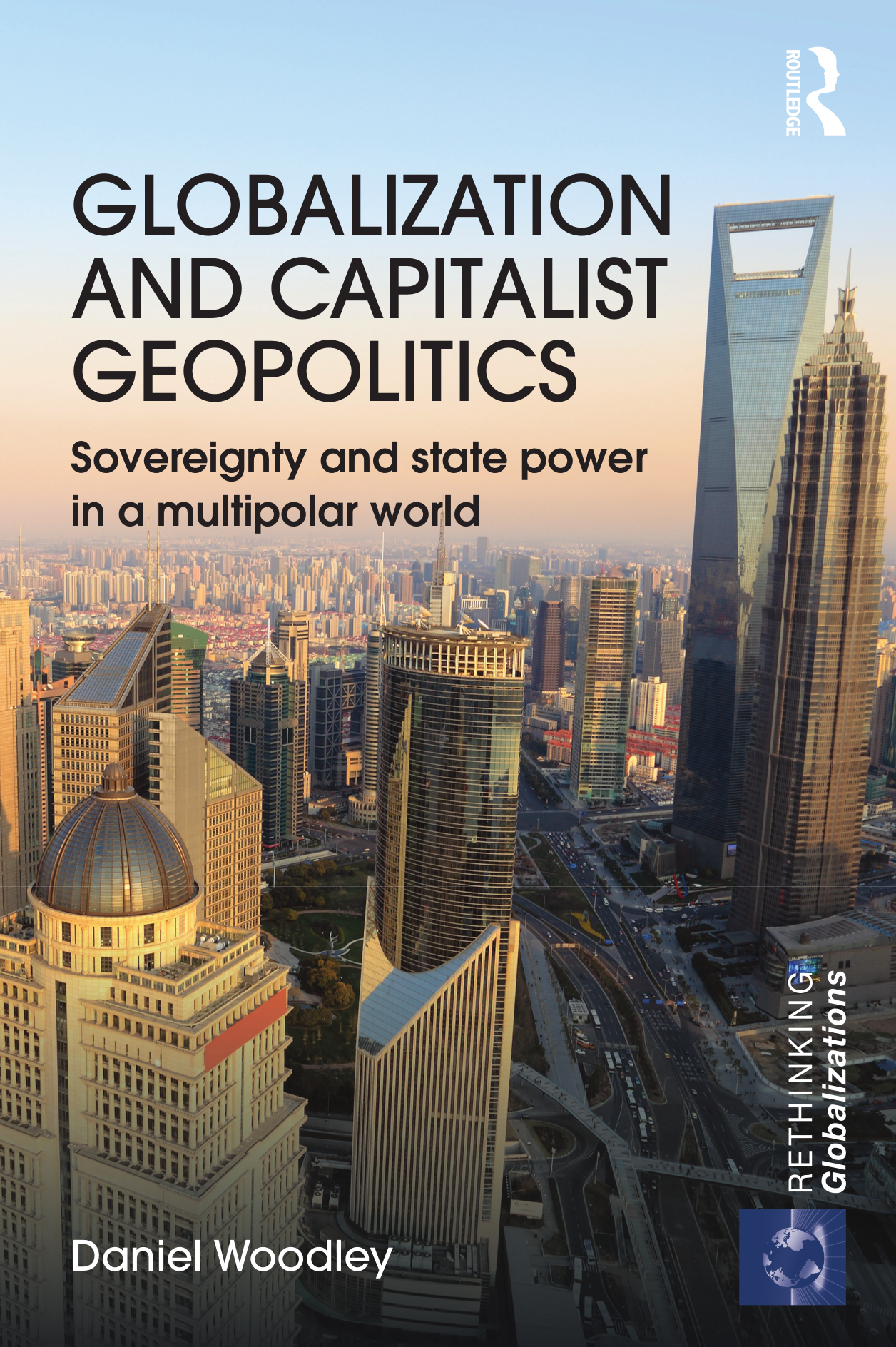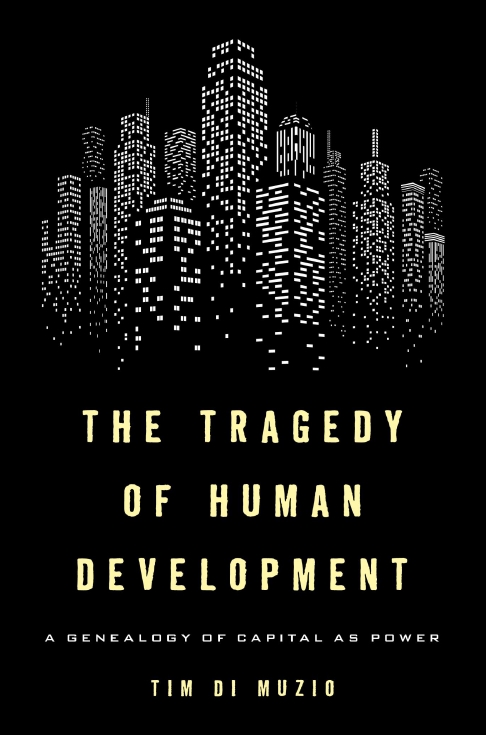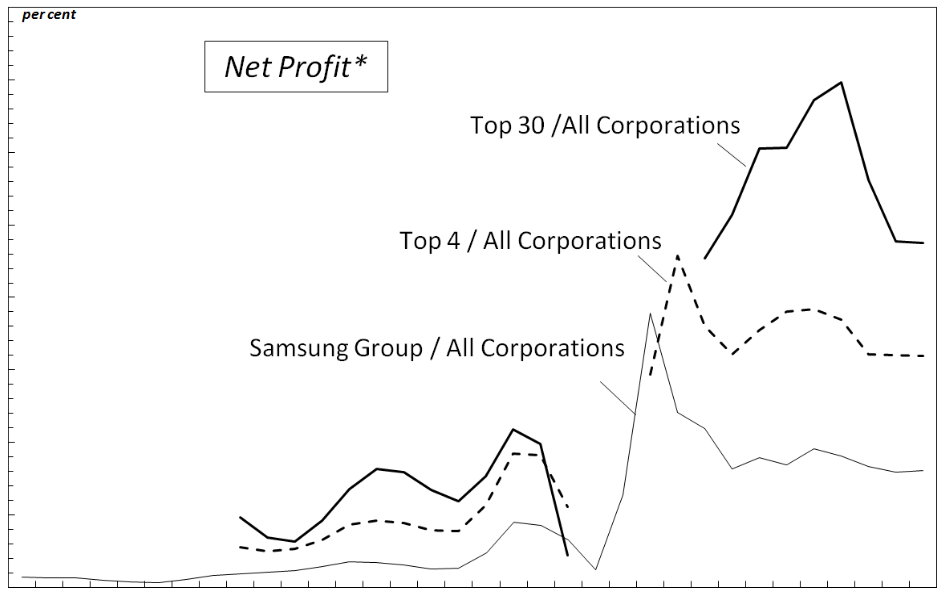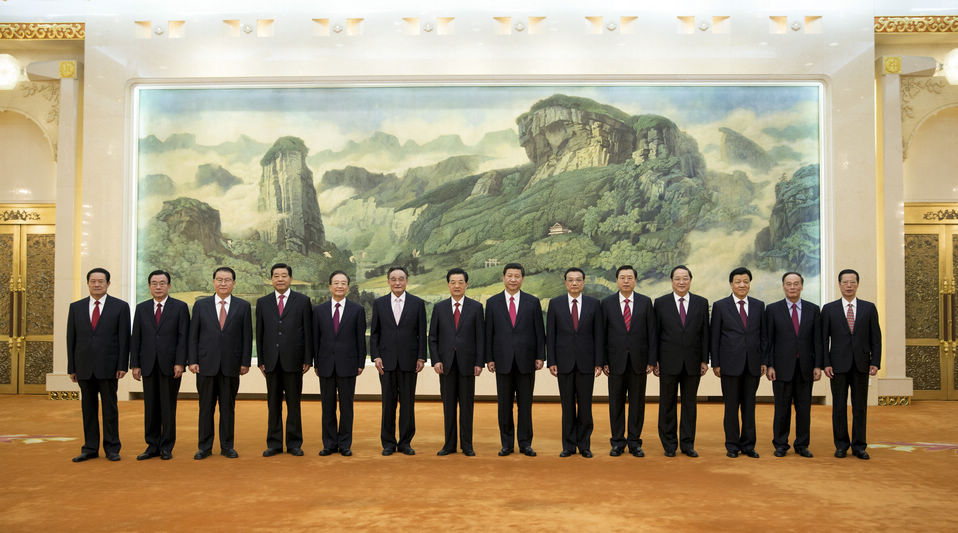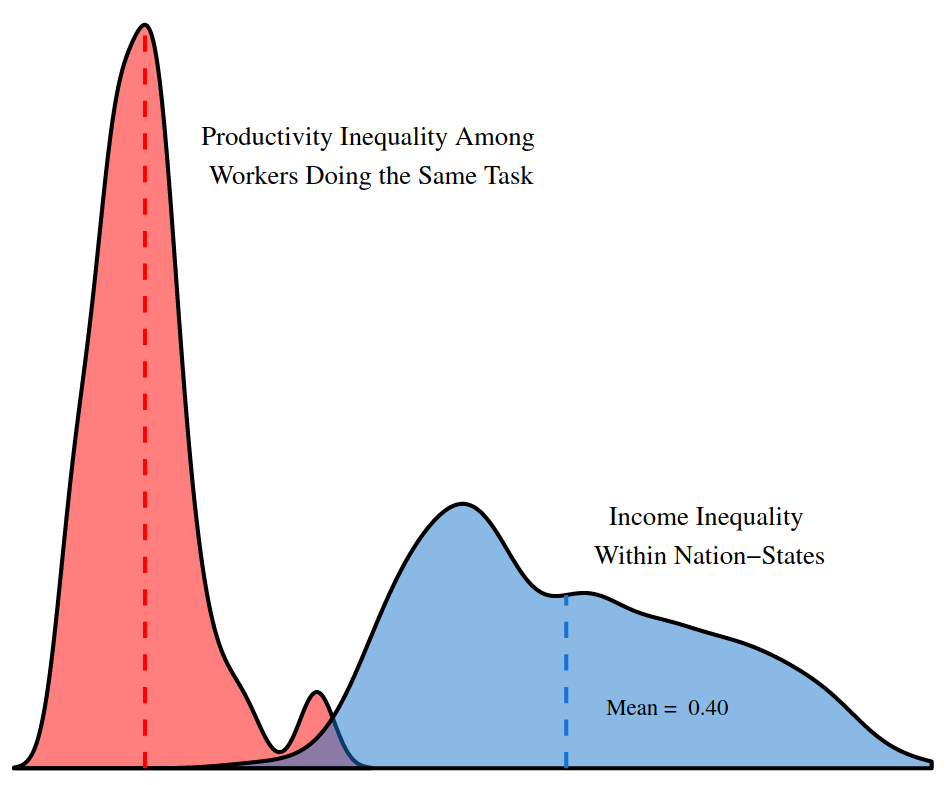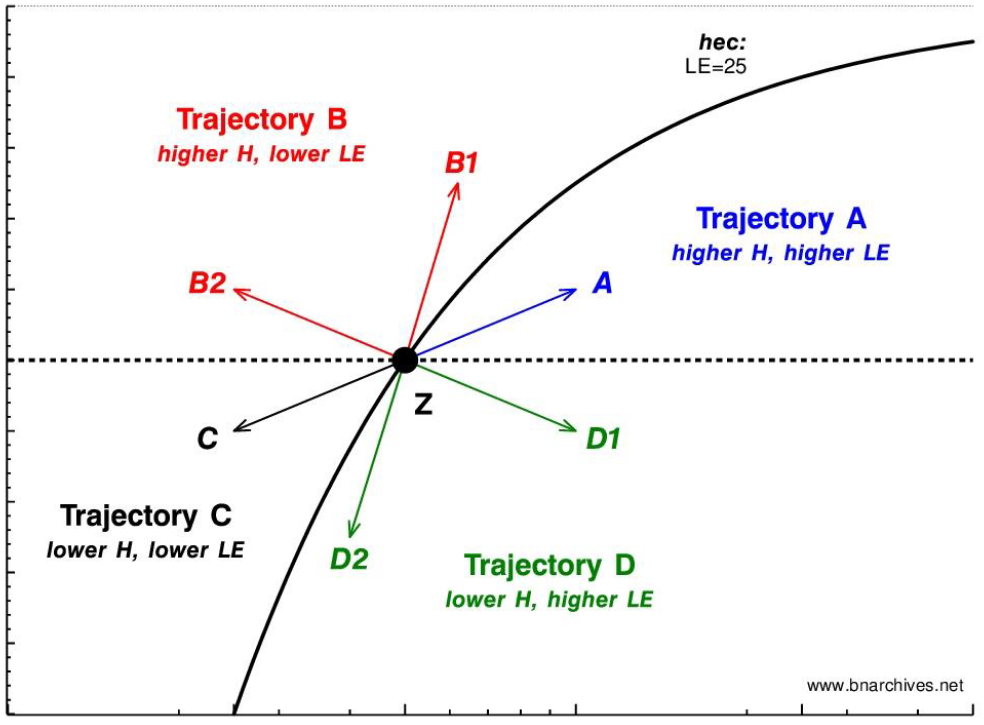Originally published at pluralistic.net Reproduced under a Creative Commons Attribution 4.0 license Cory Doctorow You know how “realist” has become a synonym for “asshole?” As in, “I’m not a racist, I’m just a ‘race realist?’” That same “realism” is also used to discredit the idea of democracy itself, among a group of self-styled “libertarian elitists,” […]
Continue Reading2020/04: McMahon, ‘Reconsidering Systemic Fear and the Stock Market: A Reply to Baines and Hager’
Abstract A recent New Political Economy article by Baines and Hager (2020) critiqued Shimshon Bichler and Jonathan Nitzan’s capital-as-power (CasP) model of the stock market (Bichler & Nitzan, 2016). Bichler and Nitzan’s model of the stock market seeks to explain how financial crises are tied to the (upper) limits of redistributing income through power. Bichler […]
Continue ReadingAgent-Based Models and the Ghost in the Machine
Originally published on Economics from the Top Down Blair Fix In the opening post of this blog, I described my ‘top-down’ approach to studying society. This means studying groups of people without trying to reduce everything to the actions of individuals. It’s not that I think individual actions are unimportant. Of course they are important. […]
Continue ReadingGroping in the Dark: The Untold Side of Research
Originally published on Economics from the Top Down Blair Fix There is an exciting side of blogging that I want to explore here. Blogging can tell the story behind research. This is something you don’t get in journals. Most scientific articles obey a formula that goes like this: Here is the question I asked. Here […]
Continue ReadingVideo: Can Capitalists Afford Economic Growth? An Animation
Elvire Thouvenot has produced an animated video that summarizes the key points of Bichler and Nitzan’s 2014 paper “Can Capitalists Afford Recovery? Three Views on Economic Policy in Times of Crisis.” This paper was first printed in Review of Capital as Power. It was reprinted in Philosophers for Change. Watch the video below:
Continue ReadingFix, Nitzan & Bichler, ‘Real GDP: The Flawed Metric at the Heart of Macroeconomics’
Abstract The study of economic growth is central to macroeconomics. More than anything else, macroeconomists are concerned with finding policies that encourage growth. And by ‘growth’, they mean the growth of real GDP. This measure has become so central to macroeconomics that few economists question its validity. Our intention here is to do just that. […]
Continue ReadingWoodley, ‘Globalization and Capitalist Geopolitics: Sovereignty and State Power in a Multipolar World’
Abstract Globalization and Capitalist Geopolitics is concerned with the growth of transnational corporate power against the backdrop of the decline of the West and the struggle by non-Western states to challenge and overcome domination of the rest of the world by the West. At the centre of the study is the problematic status of the […]
Continue Reading2017 Review of Capital as Power Essay Prize
The Review of Capital as Power (RECASP) announces an annual essay prize on the subject of capital as power. The best paper will receive a prize of $2000. A prize of $500 will be awarded to the second best contribution, while a $300 prize will be given to the third best article. Submitted articles should […]
Continue ReadingDi Muzio, ‘The Tragedy of Human Development: A Genealogy of Capital as Power’
Abstract How might an objective observer conceive of what humans have accomplished as a species over its brief history? Benjamin argues that history can be judged as one giant catastrophe. Liberals suggest that this is to sombre an assessment and that human history can be read as a story of greater and greater progress in […]
Continue ReadingHoward, ‘Craftwashing in the U.S. Beer Industry’
Abstract Background: Big brewers, which have experienced declining sales for their beer brands in the last decade, have been accused of “craftwashing” by some craft brewers and their aficionados—they define craftwashing as big brewers (>6 million barrels per year) taking advantage of the increasing sales of craft beer by emulating these products or by acquiring […]
Continue ReadingProfit warning: there will be blood
Shimshom Bichler and Jonathan Nitzan The following research note first appeared on Real World Economics Review Blog. We have just updated the charts in our 2014 RWER paper ‘Still About Oil?’, and the picture they portray reads like a capitalist call for arms. Beginning in the late 1980s, we suggested that, since the late 1960s, […]
Continue ReadingThird Speaker Series on the Capitalist Mode of Power
ABSTRACT Existing theories of capitalism, mainstream as well as heterodox, view capitalism as a mode of production and consumption. The purpose of this ongoing speaker series is to interrogate capitalism as a mode of power. The presentations offer a power theory of personal income distribution (Blair Fix, 2:30-5:30pm, October 17, 2017), explore the power to […]
Continue ReadingHolman & McMahon, ‘From Power over Creation to the Power of Creation: Cornelius Castoriadis on Democratic Cultural Creation and the Case of Hollywood’
Abstract This article is a critical investigation and application of the aesthetic theory of Cornelius Castoriadis, one of the most important 20th-century theorists of radical democracy. We outline Castoriadis’s thoughts on autonomy, the social-historical nature of Being, and creation — key elements that inform his model of democratic culture. We then develop a Castoriadian critique […]
Continue Reading‘Is the Power of Mass Culture Profitable?’, Public Lecture by James McMahon
This presentation will examine how and why political economic theories of mass culture have accumulated, but not settled, methodological issues about the meaning of value and the nature of productivity. Labour is certainly an important factor to any comprehensive study of capitalist mass culture, but it is our assumptions about economic productivity and not the […]
Continue ReadingPark, ‘Korea’s Post-1997 Restructuring: An Analysis of Capital as Power’
Abstract Winner of the RRPE Annual Best Paper Award for 2016 This paper aims to transcend current debates on Korea’s post-1997 restructuring, which rely on a dichotomy between domestic industrial capital and foreign financial capital, by adopting Nitzan and Bichler’s capital-as-power perspective. Based on this approach, the paper analyzes Korea’s recent political economic restructuring as […]
Continue Reading'From Colonialism to Climate Change: The Power to Externalize', Public Lecture by D.T. Cochrane
The history of capitalism is a history of externalization. While benefits were tallied, costs were routinely excluded from accounts. In this presentation I examine the history of externalization as a power process. A history of brutality and destruction marketed as innovation and efficiency, externalization has been the shadowy counterpart to accumulation. From colonialism to climate […]
Continue Reading'A Power Theory of Personal Income Distribution', Public Lecture by Blair Fix
Due in no small part to the work of Thomas Piketty, the empirical study of income inequality has flourished in the last decade. But this plethora of new data has not led to a corresponding theoretical revolution. Why? The problem, I believe, is an unwillingness to question and test the basic assumptions on which current […]
Continue ReadingNo. 2017/04: Bichler & Nitzan, ‘Arms and Oil in the Middle East: A Biography of Research’
Abstract During the late 1980s, we printed a series of working papers, offering a new approach to the political economy of Israel and wars in the Middle East. Our approach in these papers rested on three new concepts. It started by identifying the Weapondollar-Petrodollar Coalition – an alliance of armament firms, oil companies and financial […]
Continue ReadingNo. 2017/03: Fix, ‘Evidence for a Power Theory of Personal Income Distribution’
Abstract This paper proposes a new ‘power theory’ of personal income distribution. Contrary to the standard assumption that income is proportional to productivity, I hypothesize that income is most strongly determined by social power, as indicated by one’s position within an institutional hierarchy. While many theorists have proposed a connection between personal income and power, […]
Continue ReadingNo. 2017/02: Bichler & Nitzan, ‘Growing through Sabotage’
Abstract According to the theory of capital as power, capitalism, like any other mode of power, is born through sabotage and lives in chains – and yet everywhere we look we see it grow and expand. What explains this apparent puzzle of ‘growth in the midst of sabotage’? The answer, we argue, begins with the […]
Continue Reading



